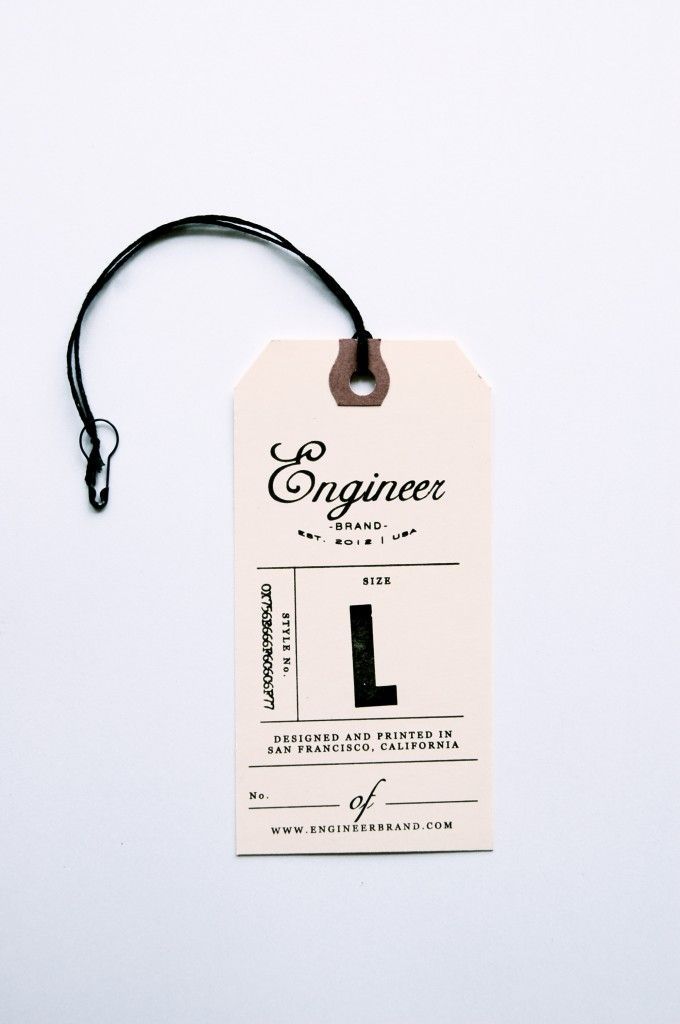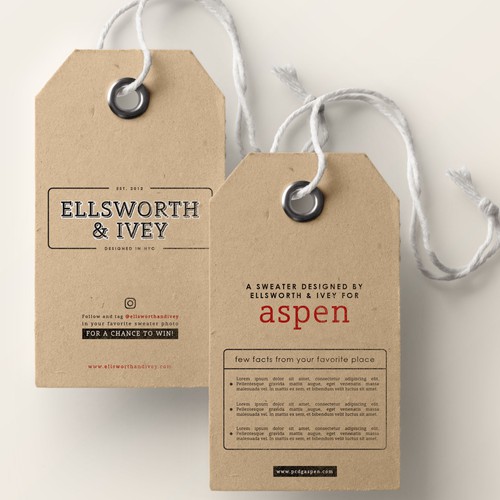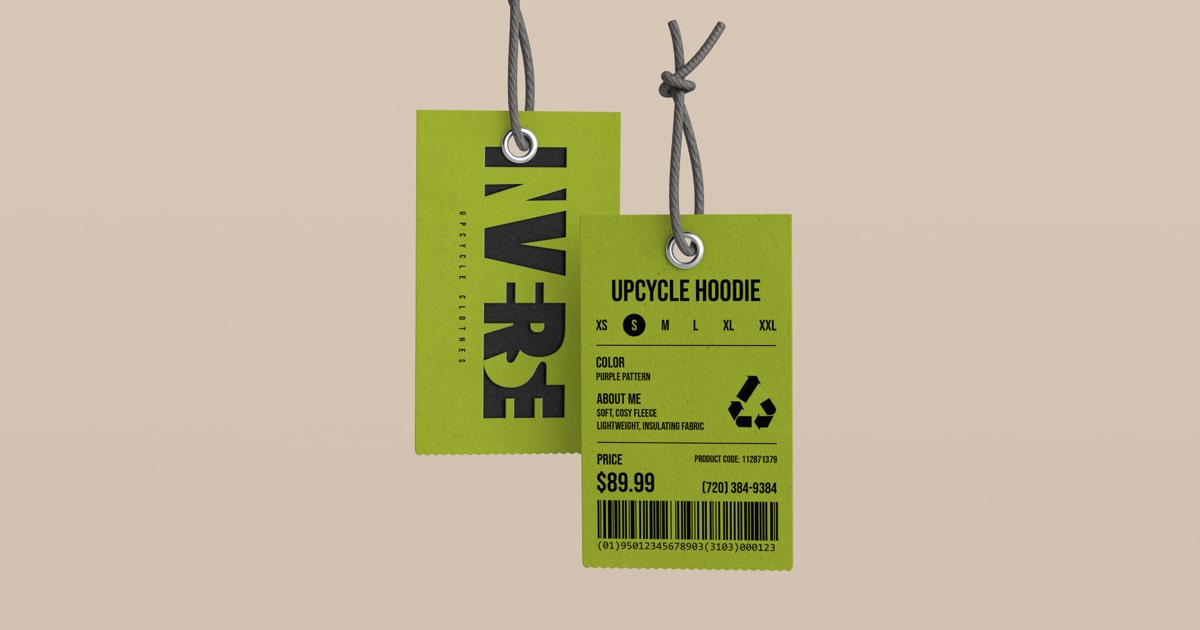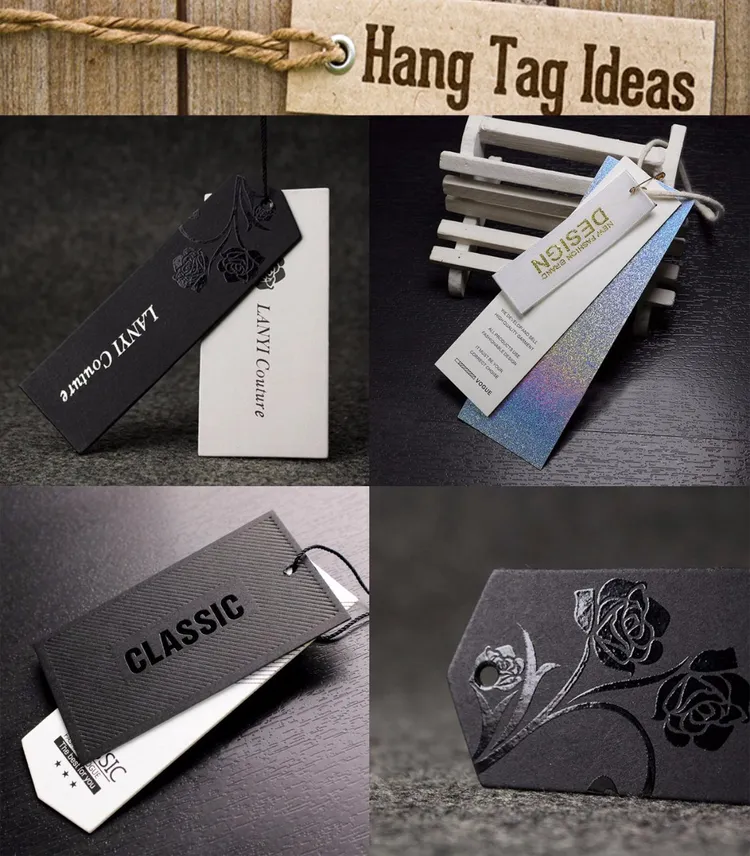Content Menu
● Introduction to Clothing Hang Tags
● Importance of Hang Tags
● Designing Effective Hang Tags
● Functionality of Hang Tags
● Examples of Creative Hang Tags
● Challenges and Opportunities
● Case Study: Sustainable Hang Tags
● Digital Integration with Hang Tags
● The Role of Hang Tags in Luxury Brands
● Case Study: Luxury Hang Tags
● Hang Tags in E-commerce
● Future Trends in Hang Tags
● Conclusion
● Frequently Asked Questions
Clothing hang tags have been a staple in the fashion industry for decades, serving as a crucial element in product presentation and brand identity. Despite their long-standing presence, many wonder if hang tags remain relevant in today's fast-paced retail landscape. This article explores the importance, design, and functionality of clothing hang tags, highlighting their continued significance in the fashion world.
Introduction to Clothing Hang Tags
Hang tags, also known as swing tags, are labels attached to clothing items using non-adhesive methods like threads or ties. They are typically made from thicker materials such as heavy paper stock or card, ensuring durability and visibility on store racks. These tags provide essential product information, including sizing, pricing, care instructions, and brand details, making them a vital component of retail marketing strategies.
Importance of Hang Tags
Brand Identity: Hang tags are a reflection of a brand's identity, showcasing its style and personality. They can include logos, brand stories, or unique selling points (USPs) that differentiate the brand from competitors.
Marketing Tool: Hang tags can be used to promote special offers, discounts, or loyalty programs, encouraging customers to engage more with the brand.
Product Information: They provide crucial details about the product, such as fabric composition and care instructions, which are essential for customer satisfaction and brand credibility.
Design and Creativity: Hang tags offer a canvas for creative expression, allowing brands to stand out through unique designs, shapes, and materials.

Designing Effective Hang Tags
Design plays a critical role in the effectiveness of hang tags. Here are some key considerations:
Material: Hang tags can be made from various materials, including paper, PVC, and even leather, offering flexibility in design and feel.
Shape and Size: Custom shapes and sizes can be used to match the brand's aesthetic or product theme.
Printing Techniques: Techniques like UV printing, embossing, and silkscreen printing can add depth and visual appeal.
Color and Typography: Using brand colors and typography helps maintain consistency across all marketing materials.

Functionality of Hang Tags
Hang tags serve multiple functions beyond just providing product information:
Care Instructions: They guide customers on how to properly care for their garments, extending product lifespan and enhancing customer satisfaction.
Material Details: For eco-conscious consumers, hang tags can highlight sustainable materials used in the product.
Promotional Offers: Including promotional codes or discounts can encourage repeat purchases and loyalty.

Examples of Creative Hang Tags
Here are some innovative hang tag ideas:
Laser Stamped Hang Tags: Using laser-stamped silver or gold for a unique visual effect.
Frosted PVC Hang Tags: Offering a sleek, modern look with frosted PVC material.
Leather Hang Tags: Ideal for luxury brands, these tags convey high-quality craftsmanship.

Challenges and Opportunities
While hang tags remain essential, there are challenges and opportunities in their use:
Sustainability: With growing environmental concerns, brands are exploring eco-friendly materials for hang tags.
Digital Integration: Some brands are incorporating QR codes or NFC tags to connect customers with digital content, enhancing the shopping experience.
Case Study: Sustainable Hang Tags
Companies like Patagonia have been at the forefront of using sustainable materials for their hang tags. By switching to recycled paper or biodegradable materials, brands can reduce their environmental footprint while maintaining the effectiveness of hang tags as marketing tools.
Digital Integration with Hang Tags
Incorporating digital elements into hang tags can revolutionize the shopping experience:
QR Codes: Customers can scan QR codes to access product videos, reviews, or exclusive promotions.
NFC Tags: These allow customers to interact with digital content directly from their smartphones.

The Role of Hang Tags in Luxury Brands
Luxury brands often use hang tags to convey exclusivity and high-quality craftsmanship. Materials like leather or premium paper are commonly used to reflect the brand's luxury status.
Case Study: Luxury Hang Tags
Brands like Gucci and Louis Vuitton use elaborate designs and materials for their hang tags, reinforcing their luxury image and enhancing the customer experience.

Hang Tags in E-commerce
In the e-commerce sector, hang tags may seem less relevant since products are often displayed digitally. However, they remain important for several reasons:
Packaging: Hang tags can be included in packaging to provide a tangible brand experience even in online purchases.
Brand Consistency: Consistent branding across all platforms, including physical packaging, reinforces brand identity.
Future Trends in Hang Tags
As technology advances and consumer preferences evolve, hang tags are likely to incorporate more innovative features:
Smart Hang Tags: These could include RFID or NFC technology to track inventory and provide real-time product information.
Interactive Hang Tags: Incorporating augmented reality (AR) or QR codes that link to interactive content can enhance customer engagement.
Conclusion
Clothing hang tags continue to play a vital role in the fashion industry, serving as both functional and creative tools for brands. By incorporating unique designs, materials, and technologies, hang tags can enhance brand identity, customer engagement, and overall product appeal. As the industry evolves, the integration of digital elements and sustainable practices will further solidify the relevance of hang tags in modern retail.
Frequently Asked Questions
Q: What is the primary purpose of clothing hang tags?
A: The primary purpose of clothing hang tags is to provide essential product information such as sizing, pricing, and care instructions, while also serving as a marketing tool to enhance brand identity and customer engagement.
Q: What materials are commonly used for hang tags?
A: Common materials include heavy paper stock, card, PVC, and leather, offering a range of textures and durability levels.
Q: How can hang tags be used creatively?
A: Hang tags can be creatively designed using unique shapes, materials, and printing techniques like UV printing or embossing to stand out and reflect the brand's personality.
Q: What information should be included on a hang tag?
A: Essential information includes product details (sizing, pricing), care instructions, material composition, and any promotional offers or brand stories.
Q: Are hang tags still relevant in the digital age?
A: Yes, hang tags remain relevant as they provide tangible, immediate information and can integrate with digital technologies like QR codes to enhance the shopping experience.
Q: How can hang tags contribute to sustainability?
A: Hang tags can contribute to sustainability by using eco-friendly materials such as recycled paper or biodegradable materials, reducing waste and environmental impact.
Q: What role do hang tags play in luxury brands?
A: Hang tags in luxury brands are used to convey exclusivity and high-quality craftsmanship, often featuring premium materials like leather.
Q: How are hang tags used in e-commerce?
A: In e-commerce, hang tags are included in packaging to provide a tangible brand experience and maintain brand consistency across all platforms.



































